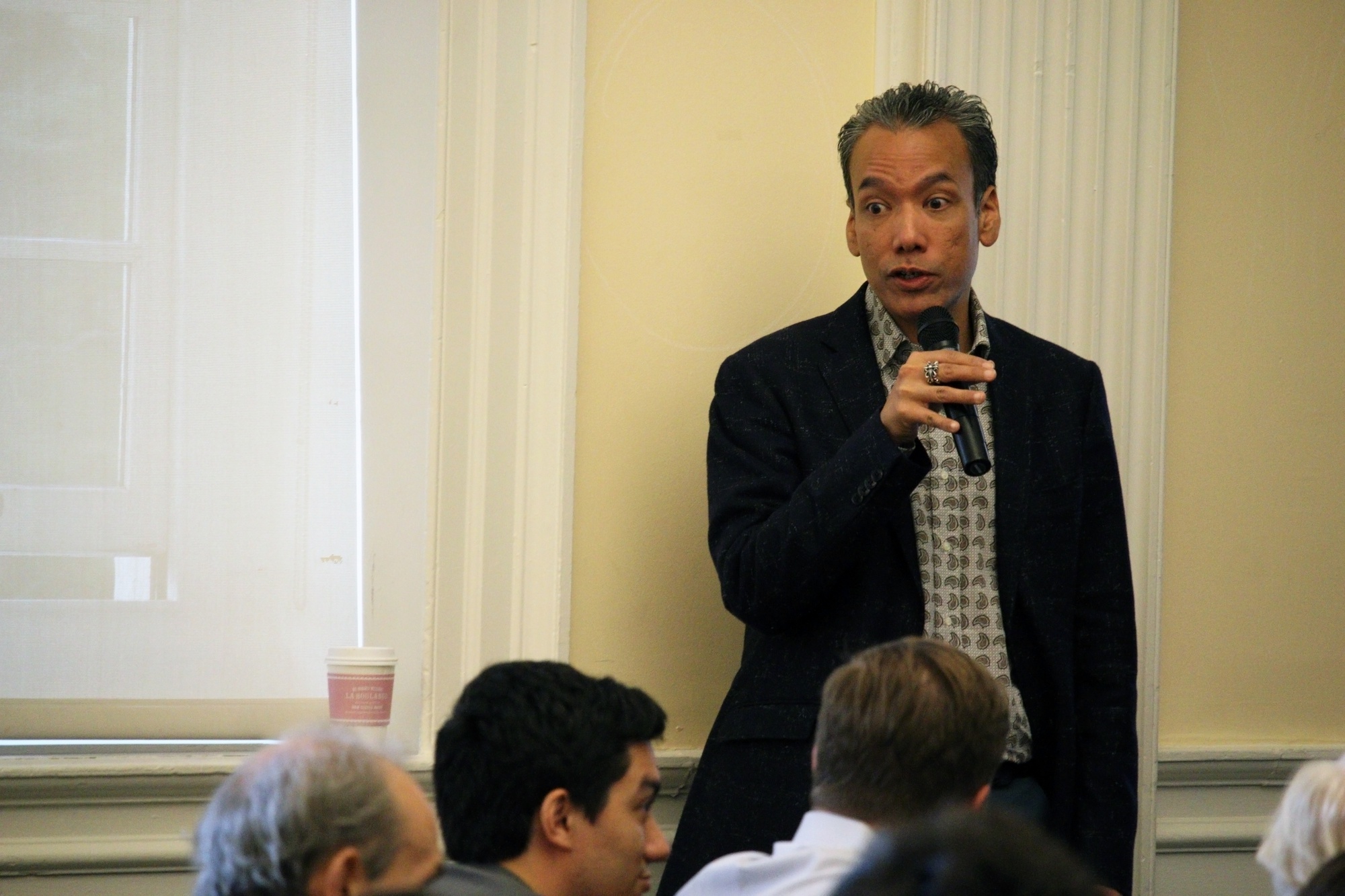
News
Cambridge Residents Slam Council Proposal to Delay Bike Lane Construction

News
‘Gender-Affirming Slay Fest’: Harvard College QSA Hosts Annual Queer Prom

News
‘Not Being Nerds’: Harvard Students Dance to Tinashe at Yardfest

News
Wrongful Death Trial Against CAMHS Employee Over 2015 Student Suicide To Begin Tuesday

News
Cornel West, Harvard Affiliates Call for University to Divest from ‘Israeli Apartheid’ at Rally
At Town Hall Meeting, Professors Discuss Future edX Improvements

At a town hall meeting Thursday evening, HarvardX Faculty Director Robert A. Lue and fellow faculty members addressed how the 16-month-old online learning platform must continue to adapt pedagogically, financially, and structurally to reach its goals—expanding access, improving teaching, and advancing research.
HarvardX is the University’s component of the edX platform, an online learning venture which brings together universities from around the world to create online courses for a global audience. Over the past year, HarvardX launched edX’s first humanities course and intends to add an additional 15 new courses over the next few months, according to Lue.
But faculty have identified a number of areas of improvement.
“High-quality pedagogy is lacking in MOOCs,” said Graduate School of Education associate professor Meira Levinson during a speech at the meeting, in reference to the massive open online courses which HarvardX offers. To help remedy this problem, Levinson said she will use data collected from an urban education course that she is bringing to edX this fall to gauge the effectiveness of using case studies in an online environment.
This capacity for experimentation is HarvardX’s best aspect, said David Sliski, a curatorial assistant at the Harvard Observatory who attended the town hall, which is this year’s first.
“There is an exponential increase in the development of teaching strategies because of the large audience a single course can reach, a kind of evaluation that has never been possible before,” he said.
Addressing questions about the platform’s financial viability, Lue said that it is “likely that philanthropy won’t allow HarvardX to go forward forever.”
He added that HarvardX might look to licences for governments and businesses that will be using the platform’s resources as possible sources of revenue, in addition to the ID-verified completion certificates that edX President Anant Agarwal recently announced.
In an interview with The Crimson following the meeting, Lue also acknowledged the low retention rates reported by MOOCs, calling them “largely misinterpreted.” He said that it is important to remember that many enrollees never intend to finish the course but instead only complete certain modules of the program. “It might be beneficial for those seeking to complete the course to be in a separate forum,” Lue added.
Lue also emphasized that the platform is meant as much for students at Harvard as it is for those elsewhere.
“HarvardX is our institutional commitment to harnessing the Internet to support amazing gains in learning, for people outside campus, but, as importantly, for students on campus,” he said.
Want to keep up with breaking news? Subscribe to our email newsletter.
